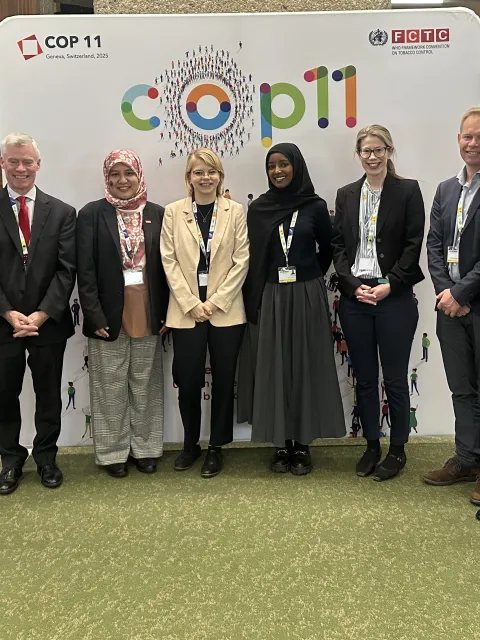Using Big Tobacco’s Playbook to hook a new generation

The 2014 documentary Merchants of Doubt, based on the book of the same name by Naomi Oreskes and Erik M. Conway, highlights the connections between the tactics used by the fossil fuel industry, including its climate denial and misinformation campaigns, and those long wielded by the tobacco industry. The difference was that the tobacco industry’s tactics, commonly referred to as its Playbook, have been known for decades. The sheer breadth of the industry’s deceptive Playbook tactics was exposed when tens of thousands of internal industry documents were made public through the 1998 Masters Settlement Agreement.
The Big Tobacco Playbook has been implemented by a number of other industries, from Oil to Soda companies, to ensure profit maximisation despite the profound harm their products cause. The Playbook has become a how-to guide to deceive the public about the dangerous products they peddle while padding profits. For example, the fossil fuel industry has used the Playbook to sow doubt about established scientific fact, mislead regulators with deceptive schemes masquerading as actual solutions, and skirt regulations that would otherwise reduce emissions, protect public health, and halt community and habitat destruction. Likewise, Big Soda has relied heavily on the youth marketing tactics that hook kids at a young age and thus often for a lifetime. This ultimately results in life-long affinity to sugary drinks and enables the often-dire food-related diseases that follow.
To make matters worse, despite being widely exposed for its cynical, deadly tactics, the tobacco industry has continued to refine the Playbook for its own ends. Recently it revamped its strategy to target and hook a new generation of potential consumers and to mislead a new generation of regulators. E-cigarettes, for example, have had devastating health consequences across the U.S., so much so that the liability of Juul is investigated by public officials. In fact, Juul’s implementation of the tobacco industry’s playbook was one of the first widely noted features of its marketing when investigations into the nicotine corporation began.
Juul was not the only corporation, however, to peddle a so-called ‘solution’ to the devastating impacts of tobacco. Traditional Big Tobacco corporations like Philip Morris International (PMI) and British American Tobacco have also jumped on the bandwagon. Like the e-cigarette vaping trend, their addictive heat-not-burn products are pushed through slick, misleading marketing campaigns that try to label themselves as so-called “harm reduction” products. These products continue the Playbook’s tradition of trying to make a false solution appear genuine, so as to hook a new generation and produce enough misinformation that regulators unwittingly pass policies that effectively bolster tobacco industry priorities at the expense of people’s health.
With heat-not-burn, vaping and other novel and new tobacco products, the industry seeks new methods to acquire new life-long customers. This strategy is important since cigarette sales have been steadily declining since the introduction of the Global Tobacco Treaty and the resulting stronger public health regulations globally. Again, this strategy is also nothing new. When traditional cigarette sales previously faced a decline, the tobacco industry rolled out a new batch of products, which it presented as investments in people’s well-being. Look no further than the “Light & Mild” and filtered cigarette eras, when Big Tobacco—like today—peddled false solutions with marginal or no health benefits.
Today, the industry continues to promote so-called “harm reduction” products to a new generation. What they’ve removed from this seemingly benevolent narrative is any indication of moving toward a tobacco-free generation altogether. PMI consistently touts the USD6bn spent on research and development for IQOS. What it won’t mention is that it continues to spend money on the research and development of new traditional cigarette products. Just last year, the PMI-owned Sampoerna released a new clove cigarette in a country already overrun by tobacco addiction.
The tobacco industry claims it cares and is turning over a new leaf. Yet public health regulations protecting people from tobacco products directly conflict with Big Tobacco's overriding priority: to maximise profits for its shareholders. We need to look no further than its recent moves during the COVID-19 pandemic. Whether only temporarily closing manufacturing facilities in Bologna at the height of COVID-19 deaths in Italy or denying the scientific links between tobacco use and COVID-19—a virus characterized by respiratory symptoms—Big Tobacco’s primary focus is enslaving a new generation to guarantee its profit pipeline despite the harm it causes.
Last update
Monday 27 February 2023Share this page


